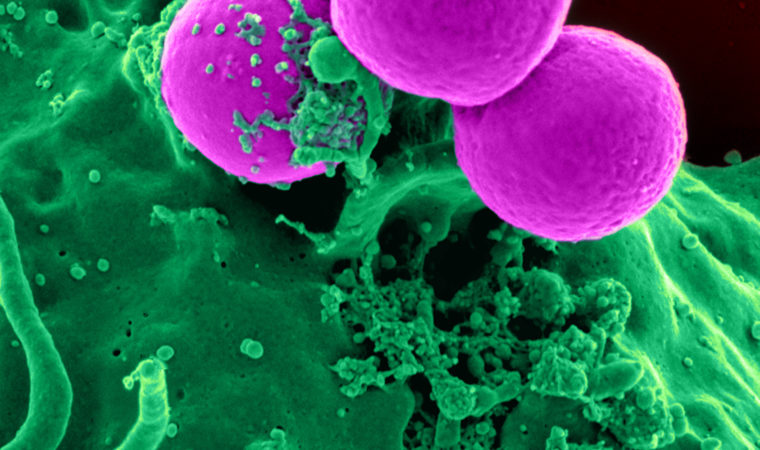MRSA, or methicillin-resistant Staphylococcus aureus, is a bacterial infection. The infection causes skin infections in non-hospitalized people. For those that contract the infection in a hospital, particularly following a surgery, sepsis, pneumonia and site infections are common. Because MRSA is resistant to typical antibiotics, curing it can be difficult.
Symptoms of MRSA
MRSA can be difficult to diagnose because when it first appears, its looks mimic those of other skin rashes. You may notice reddish bumps or blisters. While other rashes may spread or worsen, MRSA gets worse much more rapidly. Bumps quickly swell, become painful and filled with pus. You may develop a fever and the skin around the area may become tender to the touch. Depending on where MRSA is located, you may also notice a generalized swelling of the surrounding tissue.
MRSA Transmission
MRSA is typically transmitted via skin-to-skin contact. It can also be spread by objects. MRSA can live on towels, benches and other objects for some time. For example, if a person has MRSA, touches it and then touches an object, they can contaminate it. If you touch that object and then touch your face or another body part, you can easily contract an infection.
Treatment
If you are diagnosed with MRSA, you will be put on a course of antibiotics that are known to have an effect on the infection. If your symptoms do not resolve within a specific time frame, you may be administered antibiotics through an IV or you may be admitted to the hospital. MRSA can be a very serious illness and must be treated as such.
If you believe that you may have contracted MRSA as the result of a hospital stay in South Carolina, you may have a right to sue for compensation. Our injury lawyers can help you determine if the cause of your infection can be traced to negligence or error on the part of medical staff, resulting in medical malpractice. Call our office today and schedule an appointment for a free case evaluation.


